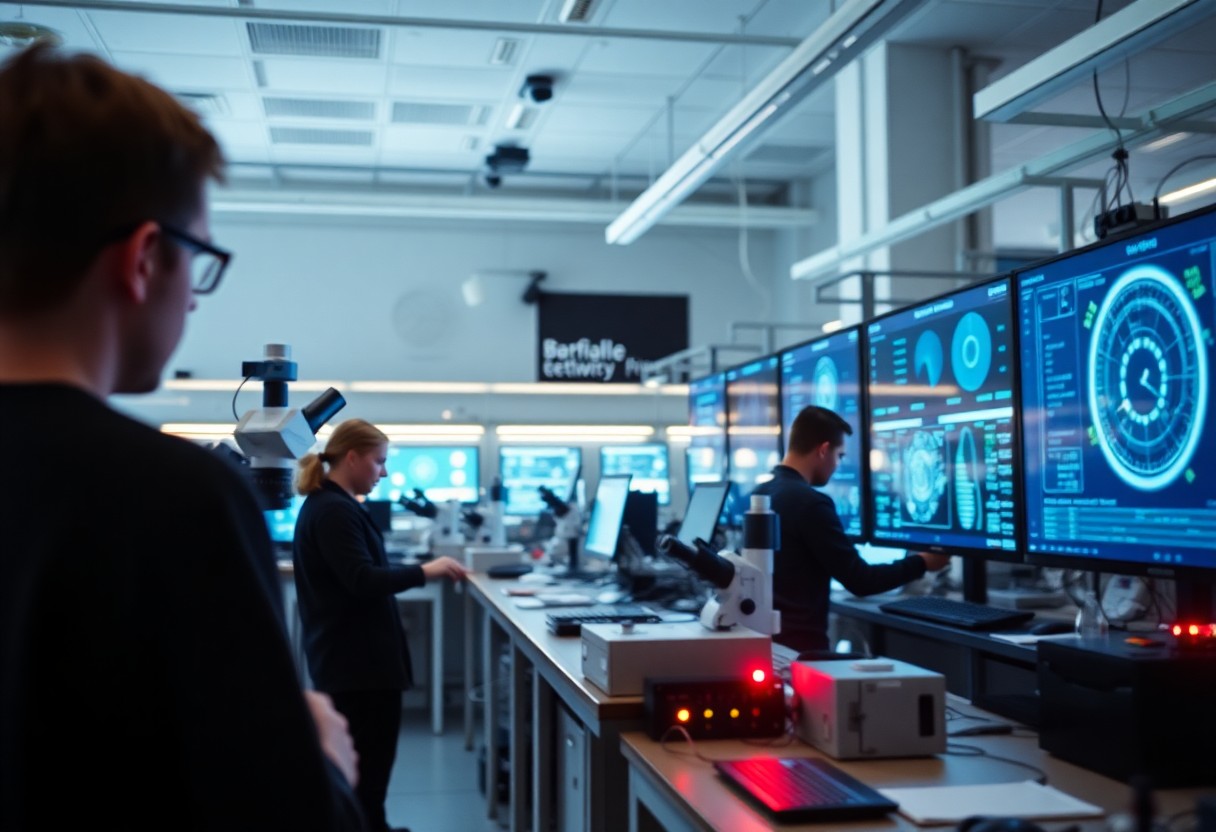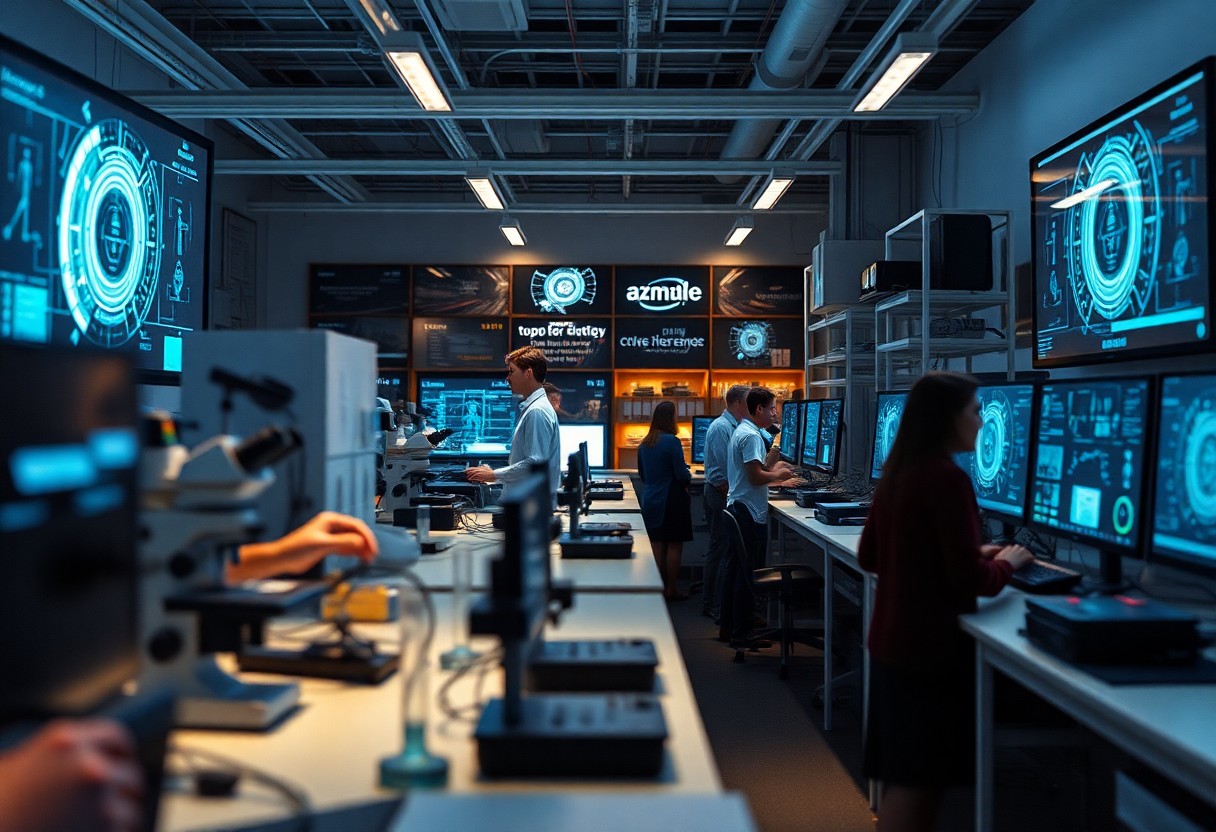Science plays a vital role in the understanding and development of media landscapes across Europe, making the Master of European Media Science (MEMS) a program worth considering for your academic journey. This interdisciplinary degree offers you the opportunity to explore the dynamic intersection of media, culture, and technology, providing you with the skills to analyze and impact the ever-evolving media environment. As you investigate this program, you’ll engage with innovative research, practical experiences, and robust discussions that will shape your future in the field of media science.
Key Takeaways:
- The Master of European Media Science (MEMS) program integrates media theory and practical skills, preparing students for diverse career paths in the media industry.
- Students gain a comprehensive understanding of the European media landscape, including cultural, economic, and technological influences affecting media production and consumption.
- The course promotes international collaboration and networking opportunities, allowing students to engage with peers and professionals from various European countries.
The Evolution of Media Studies in Europe
Media studies in Europe have undergone significant transformations, adapting to the rapid technological advancements and societal changes over decades. Your understanding of media is built on a foundation that has evolved from traditional forms to digital landscapes, influenced by globalization and the rise of new communication platforms. This field continues to expand, intertwining with disciplines such as sociology, cultural studies, and political science, reflecting the diverse media environments across Europe.
Historical Context and Milestones
The 20th century marked the beginning of formal media studies in Europe, catalyzed by the establishment of institutions and the publication of pivotal texts. The founding of the European Communication Research and Education Association (ECREA) in 2005 is a notable milestone, as it fostered collaboration among scholars and practitioners. Key works, such as Marshall McLuhan’s “Understanding Media” and the Frankfurt School’s critiques, shaped theoretical frameworks that remain relevant today.
Key Figures and Institutions Influencing the Field
Several influential figures and institutions have significantly shaped the landscape of media studies in Europe. Scholars like Stuart Hall, whose work on cultural studies examined the media’s role in society, and institutions such as the London School of Economics and the University of Amsterdam have established leading programs that guide research and scholarship. Conferences, lectures, and publications from these figures and institutions foster a vibrant exchange of ideas, promoting innovation within the field.
Among the key figures, you can’t overlook the contributions of scholars like Peter Golding and Sonia Livingstone, who have extensively researched media’s impact on public life, helping to create frameworks that analyze media consumption patterns and their social implications. Institutions across Europe, including the University of Cambridge and the Univeristy of Edinburgh, host significant research centers that encourage interdisciplinary approaches, providing imperative resources and fostering critical discussions on contemporary media challenges. Their collaborative efforts facilitate a dynamic environment for emerging scholars, influencing the next generation of media studies.
Curriculum Insights: What MEMS Programs Offer
The MEMS curriculum provides a comprehensive blend of theoretical knowledge and practical application, designed to enrich your media expertise and industry competence. From foundational concepts to advanced media analysis, these programs cover a wide range of subjects that empower students to navigate the complex media environment effectively. You’ll engage with diverse topics including digital media, cultural studies, policy analysis, and innovative media technologies, all contributing to a rich educational experience.
Core Subjects and Theoretical Frameworks
MEMS programs explore into crucial subjects such as media theory, communication models, and the socio-political implications of media practices. This theoretical foundation allows you to critically analyze media phenomena and their impact on society. Coursework often includes studies on representation, audience behavior, and the evolution of media ecosystems, shaping your understanding of how media shapes our world.
Practical Skills and Industry-Relevant Experience
Your journey through the MEMS program emphasizes acquiring practical skills that directly translate to career opportunities in the media landscape. Hands-on training in areas such as video production, social media strategy, and data analytics ensures you are well-equipped for the demands of the industry. Moreover, many programs offer internships and collaborative projects with media organizations, enhancing your real-world experience.
Engagement with real projects further solidifies your learning experience. Through internships, you’ll gain firsthand exposure to media operations and the chance to apply theoretical knowledge in practical settings. Partnering with industry leaders allows you to build a professional network while developing competencies in critical areas such as content creation, audience engagement, and digital marketing strategies. These experiences not only bolster your resume but also instill confidence as you prepare to enter a competitive job market, equipped with both knowledge and practical skills crucial for success.

The Global Relevance of MEMS
The Master of European Media Science (MEMS) program equips you with a unique understanding of the interplay between media, culture, and politics on a global scale. Through its interdisciplinary approach, MEMS encourages you to engage with international media landscapes, allowing you to analyze how European media narratives resonate beyond borders. This global relevance positions you at the forefront of media studies, settling you into a career where local insights can impact worldwide discussions.
Bridging European Media and Global Narratives
Your training in MEMS empowers you to explore the intersections of European media with global narratives, showcasing the influence of historical and contemporary issues. By examining case studies and engaging in critical discussions, you will learn to create content that not only reflects European perspectives but also resonates with diverse global audiences.
The Impact of Transnational Issues on Media Practices
Transnational issues reframe media narratives, compelling media practitioners to adapt their practices to a constantly evolving landscape. Your MEMS experience will help you analyze how migration, climate change, and digital connectivity shape media output across Europe and beyond. Understanding these dynamics leads to a more nuanced approach in content creation and audience engagement.
When you examine into the impact of transnational issues on media practices, you’ll find that events like the refugee crisis or international climate agreements influence not only how stories are reported but also who is telling them. As media outlets grapple with the need for accurate representation amidst diverse cultural contexts, you will discover how media can act as a platform for marginalized voices. Moreover, this knowledge helps you foster collaborative dialogues that challenge stereotypes and promote awareness of global interconnections, reinforcing the need for responsible journalism in an increasingly interconnected world.

Career Pathways: Opportunities with a MEMS Degree
A MEMS degree opens doors to a myriad of career opportunities within the media landscape. Graduates often find roles in journalism, digital marketing, public relations, and content creation. With the rise of multimedia platforms, your expertise will be sought after in diverse sectors, including non-profit organizations, corporate environments, and governmental agencies, where effective communication and media strategy are paramount.
Diverse Roles in the Media Landscape
Your MEMS qualification can lead to various roles in the dynamic media industry, including positions such as media analysts, content strategists, and social media managers. These roles enable you to leverage your understanding of media theories and practices while developing innovative solutions tailored to today’s digital audience. This versatility ensures that you can adapt to different media environments and contribute meaningfully to any organization.
Growing Demand for Media Professionals in a Digital Era
The digital revolution has significantly intensified the demand for skilled media professionals. With over 4.6 billion active internet users globally, businesses are increasingly relying on digital communication channels. This growth represents an expanded need for experts who can navigate complex media landscapes and create impactful content across platforms. As a MEMS graduate, you are well-positioned to step into this evolving landscape and meet the needs of modern consumers and organizations.
In 2023, the Bureau of Labor Statistics reported that employment in media and communication occupations is projected to grow by 14 percent over the next decade, significantly faster than the average for all occupations. This surge is driven by the need for content creation and management across digital platforms, highlighting that skilled professionals are necessary for effectively engaging audiences. With knowledge gleaned from your MEMS program, you become an asset capable of adapting to new media technologies and trends, ensuring that your career trajectory remains both relevant and rewarding.
The Future of Media Science Education in Europe
The landscape of media science education in Europe is evolving rapidly, driven by technological advancements and shifting audience expectations. As new platforms emerge and consumer behaviors change, educational institutions must reassess curricula and develop specialized programs that address these developments. Your learning experience can now incorporate real-world case studies and practical applications to prepare you for the dynamic media landscape that lies ahead.
Adapting to Technological Advancements
Staying ahead of the curve in media science education involves integrating cutting-edge technologies into the curriculum. Courses that focus on artificial intelligence, data analytics, and virtual reality tools will become commonplace, providing you with vital skills for navigating a highly digitized media environment. Universities are increasingly collaborating with tech companies to ensure that what you learn is relevant and aligned with industry standards.
Strategies for Enhancing Interdisciplinary Engagement
Enhancing interdisciplinary engagement is key to enriching your educational journey in MEMS. Collaborations between departments such as communication, psychology, and computer science can stimulate innovative approaches to media research and content creation. By engaging in projects that draw from diverse fields, you cultivate a holistic understanding of media implications and broaden your skill set.
To strengthen interdisciplinary engagement, institutions can implement joint programs and workshops that bring together students and faculty from varied disciplines. For example, a project combining media studies with psychology could explore the impact of social media on mental health. Similarly, partnerships with tech-oriented courses might allow you to explore more effective media distribution methods. These collaborative efforts not only enhance your learning but also reflect real-world environments where interdisciplinary skills are increasingly valued, preparing you for a successful career in the ever-changing media landscape.
Summing up
So, as you consider pursuing a Master of European Media Science (MEMS), you’re initiateing on a path that equips you with vital skills in media, communication, and cultural studies. This program not only enhances your understanding of the European media landscape but also prepares you for impactful careers across various sectors. By engaging with diverse perspectives and methodologies, you are sure to enrich your academic and professional journey, paving the way for a successful future in a rapidly evolving media environment.

